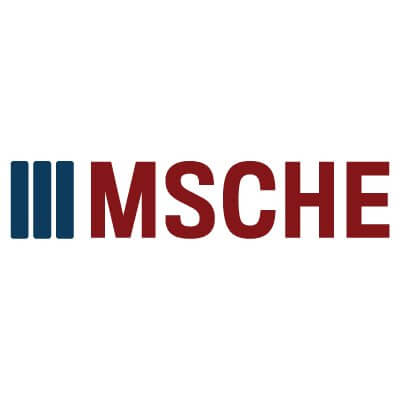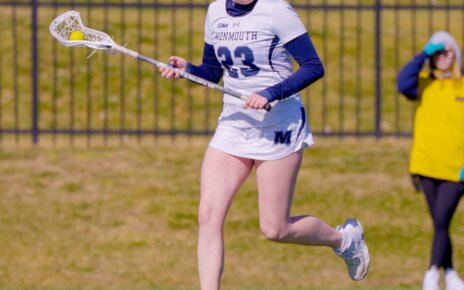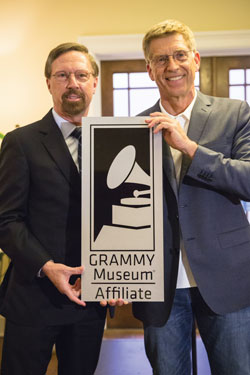The Middle States Commission on Higher Education (MSCHE) will visit Monmouth University (MU) on Apr. 6 through 9 as part of the reaffirmation accreditation process.
MSCHE is a global institution of education that “ensures accountability, self-appraisal, improvement, and innovation through peer review and the rigorous application of standards within the context of institutional mission,” according to their website.
The evaluators consist of colleagues from institutions across the region. Their goal is to verify that MU meets the needs and expectations of the students to lead them to academic excellence, and furthermore evaluate how the Univerity functions, including formal academics and student life.
Patrick Walden, Co-Chair of Accreditation at MU, explained that MSCHE concerns quality assurance and public trust. He explained that one of those purposes is “Eligibility for Federal Funding,” which includes Pell Grants, federal student loans (Stafford and PLUS loans), and federal research grants. “This is crucial. Maintaining accreditation is a requirement for the university and its students to be eligible for federal financial aid programs…Without accreditation, access to these essential funds would be lost, significantly impacting affordability for many students,” Walden said.
Walden also explained that this process benefits students’ daily experiences by providing access to financial aid to pay for housing, books, and tuition. These add to the quality of education and resources like qualified faculty, academic advising, library resources, labs and technology, and more. An accredited institution also adds to the value of a student’s degree and allows for a more recognized and respected organization.
The qualities and dynamics of MU will be reviewed by evaluators and then presented over two days. On Apr. 7, an Open Session with the Evaluation Team will be at 3:30 p.m. in Pollak Theatre and an Oral Summary of the Team’s Findings on Apr. 9 at 9:15 a.m. in the Great Hall Auditorium.
President Patrick Leahy sent an email to the student body expressing how this will be conducted.“They’ll engage with students, faculty, staff, and University leadership to evaluate how well we live up to our mission: advancing academic excellence, supporting student success, and provisioning inclusive access to higher education,” Leahy wrote.
The mission of Monmouth is defined in a 168-page “Self-Study Report” made available to students and faculty through email on Thursday, Apr. 3. The report is divided into eight sections, including an executive summary which focuses on MU’s mission, core values, strategic plan, and the self-study process.
The aspiration of Monmouth is listed as the following, “By 2026, Monmouth University will be a national leader in integrating excellence and access by becoming the most highly ranked (US News & World Report – Regional Universities North) institution with our access measures (Pell eligibility) in our category (private, non-sectarian, Division I).”
MU’s core values are detailed in the report also, which are “Excellence in Teaching and Learning, Caring Campus Characterized by Mutual Respect, Personal and Professional Integrity, Diversity, Service, and Empowerment of University Community,” as stated on page 11.
Brendan Sheehan, Student Government Association (SGA) Director of Public Relations, explained how he has had a variety of academic experiences, inside and outside of the classroom, that directly align with these values.
“The faculty members I have had during my time at Monmouth have been highly qualified, intelligent, and dedicated to student success. I share the belief that our campus, and the people that walk its grounds, are caring. This is the kind of community where people hold the door open for one another, smile as they pass and have a general demeanor of care and respect for students, faculty and staff,” Sheehan said.
He explained that whether it’s education or community service with organizations like SGA, fraternities, sororities, or even groups like the Debate Team, Monmouth is doing a lot to build the community and contribute to the good of the world.
“There are always areas for the university, and its stakeholders, to improve. I think to continue support for the pillars they’ve listed, Monmouth should continue placing emphasis on community service and giving back,” Sheehan explained.
Within Theme 2 of the Strategic Plan titled “Enhance the Student Experience,” MU is actively trying to engage students to form meaningful relationships and strive for personal growth, as Sheehan explained. Walden attested to the same saying that across all levels of study, students take the initiative and build on deeper connections.
“While my primary focus is on graduate education, I regularly see how undergraduates build community and develop a strong sense of purpose here at Monmouth. Student-led clubs, affinity groups, and student media, like ‘The Outlook,’ serve as training grounds where students learn to collaborate, manage responsibilities, and express their values in tangible ways,” Walden said.
Along with all the strengths Monmouth has achieved, such as campus infrastructures like the construction of the Bruce Springsteen Archives & Center for American Music, the Center for Student Success, and the Career Development Center, there’s still room for growth.
The report lists MU’s challenges; one in particular is “Financial Sustainability: The heavy reliance on tuition revenue creates vulnerabilities in an increasingly competitive and price-sensitive higher education market (Standard 6).” MU lists in the “Opportunities for Ongoing Institutional Improvement and Innovation” section that this can be achieved by continuing to evaluate administrative and academic operations so that they can increase efficiency and reduce costs. Currently, MU relies heavily on tuition-based income, reducing this financial dependency through external grants, corporate, or sponsorship partnerships is their goal.
Leahy said, “Growing non-tuition revenue, mostly through gifts and grants, will ease the pressure to raise tuition in the years to come. However, as costs continue to increase, it is very likely that gross tuition will continue to see annual increases. We try to keep these increases as modest as possible. For example, this year’s increase is the 3rd lowest in the last 50 years.”
Monmouth also states in its report that one of its areas of focus is “developing academic programs to enhance MU’s marketability and reputation as a leader in specialized fields of study.” As Walden explained, “Accreditation ensures that academic programs are well-designed, regularly reviewed, and focused on achieving specific student learning outcomes. This means your courses and major should provide you with the knowledge and skills they promise.”
In enhancing these programs, MU is looking into programs for future career opportunities that students can take advantage of after graduating.
Richard Viet, Provost and Senior Vice President for Academic Affairs said, “We are exploring how we might partner with Netflix when they come to Fort Monmouth through a program in film industry. We are also looking at ways to make Monmouth’s graduate programs more accessible to students by developing online pathways to degree completion.”
Between academic development, brand enhancement, finances, and MU’s overall community, the MSCHE board will look for evidence that the University meets the goals and objectives described, and can continue to meet them in the future.
Both Walden and Leahy encourage students to hear MSCHE’s findings after their on-site visit. “Your warm reception and assistance to the evaluation team–and their work–can make a lasting impression on our guests and reflect the best of who we are as an institution,” Leahy wrote in an email to students and faculty.
After reviewing the topics discussed above and the entirety of the “Self-Study Report,” had the chance to hear student input on campus, and evaluate the systems the university has in place regarding teaching effectiveness, the team will write a report citing their findings and recommendations.
The MSCHE commission will review the material and make the final decision on the reaffirmation of accreditation around June of this year.




